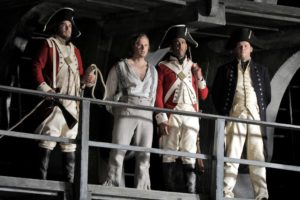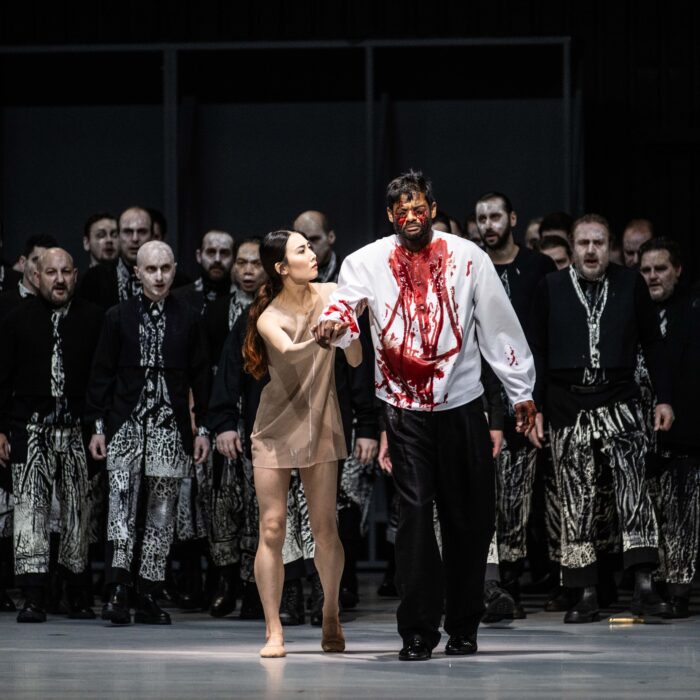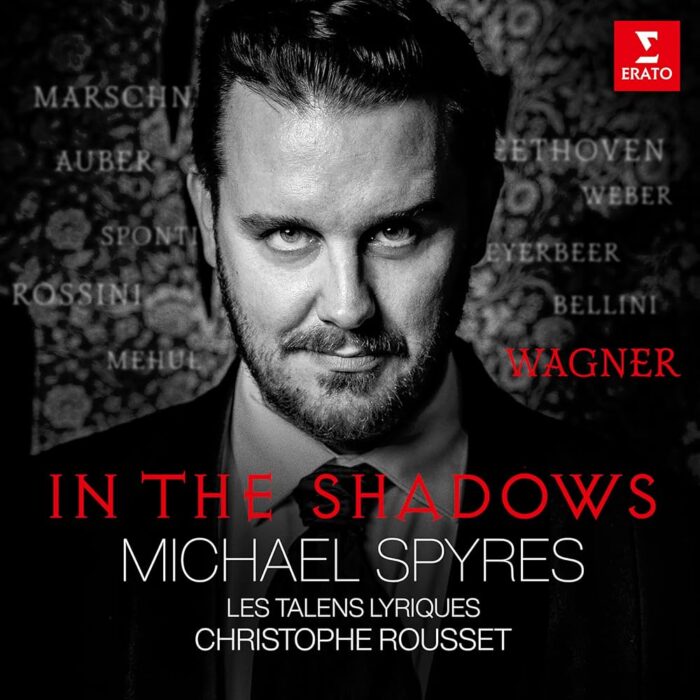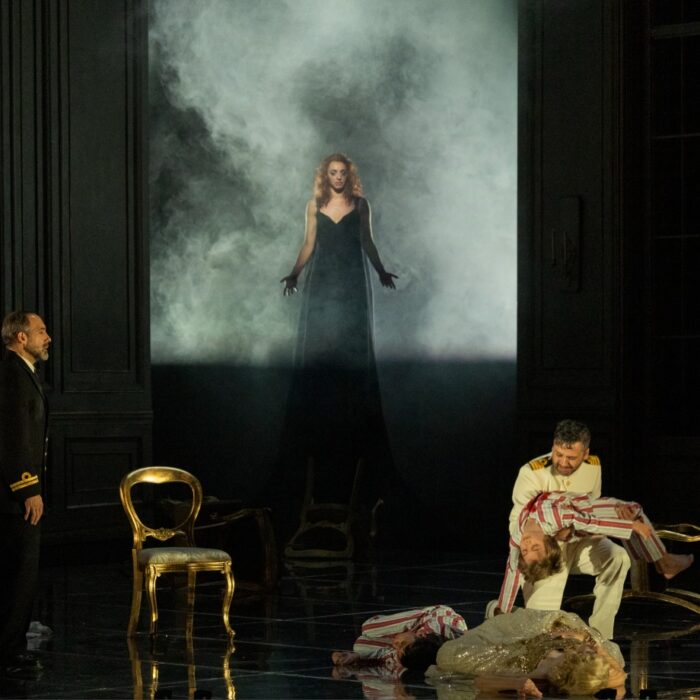
San Francisco Opera 2019-20 Review: Billy Budd
John Chest Leads A Vibrant Revival Of Britten’s Masterpiece
By Lois Silverstein(Credit: Cory Weaver / San Francisco Opera)
Billy Budd, Foretopman, is the center of the conflict between evil and good, dark and light, vulnerable and powerful in Benjamin Britten’s masterpiece “Billy Budd.”
Picking this opera for the second night opening of San Francisco’s 97th season was a masterful choice. Everything – the music, drama, ethical conflict, suspenseful, challenging, rewarding – it wouldn’t do for Opening Night, of course, being such a social diatribe, but hard on its heels, it was terrific. The encompassing belly of the ship pulled us right into its story and the dynamic music made us feel right inside the situation and its subtleties.
Safe In His Hands
The title role was interpreted by by American baritone, John Chest, and with panache. “Beauty,”as Budd is called by the malevolent enemy Claggart , is good as he is handsome, pure as he is real. Chest appealed right from the start, his voice beautiful in its sonority, his conviction embedded in each note.
This never wavered, although occasionally his mellifluous sound sank and meaning grew vague. Overall, however, his timbre was perfect, the plangent “cri de coeur” never cloying, nor a plea for sympathy. That was unique, in fact, in Budd’s character – he knew where he was in time and space and otherwise: “I am a good sailor” he told the Captain when he stood before him apparently going to receive a promotion. “In my hands, you would be safe.” Indeed, the audience was also safe in his hands.
It was all the more terrifying that a man like Claggart, played with depth and vigor and beauty by bass-baritone Christian Van Horn, could bring Billy down. Or at least tried to, when he lied about him to Vere.
Vere disliked Claggart himself, and didn’t trust him from the get-go, but because Billy stammered and couldn’t speak for himself in defense, and hit him when words wouldn’t work, and killed him, Vere is stuck with a brutal decision. The “articles-of-war” required him to put Billy to death too, i.e., in other words, put goodness and kindness, gentleness and forthrightness to death. It is the apex of the skewing of the moral compass.
The master of such a dilemma, Herman Melville, whose unfinished novella the opera is based on, knew how to convey the struggles of goodness in a world of evil. “Moby Dick” is his prime example. Melville, the genius who pinpointed conflict like this and brought it alive in his tale, excelled at deepening the undercurrents of Claggart’s character.
Claggart was not only jealous of Billy Budd. He longed for him, for his beauty and goodness, his innocence, for his everything that he lacks and mourns. He wants Budd himself. He wants to be Budd. He wants to possess him, and only he knew that such a thing could not happen; hence, he set out to destroy him.
Helpless As Billy
Edward Fairfax Vere, played eloquently by tenor William Burden, is as helpless as Billy seemed to be in the unfolding drama. He sang with plangency and purpose, even conveying his weak-willed decision. “Starry Vere” he’s called and as such, Burden conveyed his idealistic notions even as he had the hard-nosed job of guiding the ship of war.
What stood out about Burden’s performance was his less-than-hard-nosed guidance, even as he had to decide to hang Budd. He used his voice to carry Vere’s lack of brawn. It was appropriate to his psychic decision, this choice, and an excellent contrast to the stark rigidity of the “articles-of-war” and the position he held.
During the flashback sequence, he played Vere as emotionally wobbly. His regret here was more self-pitying than strong and stark.
It was an all-male cast, 75 male voices in chorus and solo, including eight boys from the Ragazzi Boys Chorus, led by Chorus Director Ian Robertson. The voices created an almost cathedral quality throughout, especially in a setting that provided such a striking interior. Mr. Redburn, Mr. Flint, Mr. Ratcliffe, sung by Philip Horst, Wayne Tigges, and Christian Pursell respectively, successfully highlighted the hierarchial structure that hammered the system into place.
Sea To Life
The action of ship life never stopped throughout the opera. Singing was as vital as the rest of the movement, carefully sculpted by acclaimed Tony Award director Michael Grandage who brought the at-sea and underwater atmosphere dramatically to the fore.
Production designer Christopher Oram set the “hulk of a set” on stage, the HMS Indomitable, an 18th century British warship. The production was staged in revival by director Ian Rutherford and featured original lighting design by Paule Constable and executed by David Manion.
The muted colors, apart from the simple white and pale blue of the blond Budd, were counterpointed by the British red-coats who marched in, rifles aloft, to bring to bear their legal rights, and righteousness. Americans, with the overtones of the Revolution strong in recent memory, rankled in the scene. The dimly lit bowels of the ship helped to create the claustrophobic ambience where the drama unfolded. As did the lights, except perhaps for the rather garish floor light on Billy when he is shackled before his hanging. Fortunately, it dimmed as Budd’s aria unfolded.
The music was the lodestar – brilliant as only Britten could do with a subject of this magnitude. Conductor Lawrence Renes kept the energy aloft and fed the singers the dimensions of tension and lyricism the score demanded. Nothing was pretty here for its own sake; words and music, psychology and complexity, originality, guided and supported the unfolding drama. The orchestra under his baton rose to the occasion.
San Francisco Opera brought the Britten masterpiece to life on the War Memorial Opera House stage. Dedicated to the late critic, the internationally renown Allan Ulrich, the performance turned out a work of art of the highest caliber, performed with eloquence and class.


